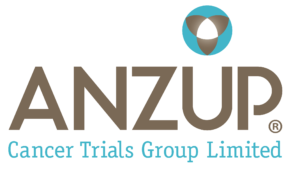UNISoN
Kidney — In Follow-up
UNISoN
In this clinical trial ANZUP will test whether new immune treatments can help people with rare kidney cancer (‘non-clear cell’ cancer).
Non-clear cell kidney cancer represents approximately 25% of people with kidney cancer; and because it is rare there are no treatments currently reimbursed in Australia.
The UNISoN trial is now closed to recruitment and is in follow up. This trial is investigating immune treatments in two different ways; firstly the trial is investigating how well one immune treatment (nivolumab) works alone. If this is unhelpful by itself, then people can continue taking nivolumab but also add in a 2nd immune treatment (ipilimumab). The trial will also discover how many people will benefit from one drug alone, and by doing detailed laboratory testing of people’s cancer samples, we hope to also learn who will only benefit from taking both treatments together.
Nivolumab and ipilimumab have been used alone or together in many cancers, so the side-effects are well known and should be manageable. Immune treatments help some people with cancer, especially those with melanoma, common (clear cell) kidney cancer, lung and bladder cancer. Unfortunately they are much less effective in other cancers (like pancreas, prostate and brain cancers). Nivolumab and ipilimumab have not been tested in people with non-clear cell kidney cancers, so ANZUP is delighted to ask this question, and hopes to help people with this rare disease.
We thank and acknowledge BMS for providing the study drug and funding to conduct the UNISoN trial.
The UNISoN trial is now closed to recruitment and is in follow up. This trial is investigating immune treatments in two different ways; firstly the trial is investigating how well one immune treatment (nivolumab) works alone. If this is unhelpful by itself, then people can continue taking nivolumab but also add in a 2nd immune treatment (ipilimumab). The trial will also discover how many people will benefit from one drug alone, and by doing detailed laboratory testing of people’s cancer samples, we hope to also learn who will only benefit from taking both treatments together.
Nivolumab and ipilimumab have been used alone or together in many cancers, so the side-effects are well known and should be manageable. Immune treatments help some people with cancer, especially those with melanoma, common (clear cell) kidney cancer, lung and bladder cancer. Unfortunately they are much less effective in other cancers (like pancreas, prostate and brain cancers). Nivolumab and ipilimumab have not been tested in people with non-clear cell kidney cancers, so ANZUP is delighted to ask this question, and hopes to help people with this rare disease.
We thank and acknowledge BMS for providing the study drug and funding to conduct the UNISoN trial.
If you think this trial might be right for you, please ask your doctor.
Trial Title
UNISoN: anzUp Nivo -> Ipi + Nivo Sequential Non-clear cell Proposed phase II sequential cohort trial of single agent Nivolumab, then combination Ipilimumab + Nivolumab in Metastatic or unresectable non-clear cell renal cell carcinoma
Cancer Type
Kidney
Trial Status
In Follow-up
Protocol Number
ANZUP 1602
Trial Email
Co-ordinating centre
Study Chair
Associate Professor Craig Gedye
Patient Population
Adults with m-n-ccRCC. Key eligibility criteria include target lesion(s) according to RECIST 1.1, good performance status (ECOG 0-1), no history of significant autoimmune disease, tumour sample available (previously resected or fresh biopsy) and no previous treatment with immunotherapy.
Recruitment Target
85 participants (Part 1)
48 participants (Part 2)
Detailed Information
Further Information
Latest Publication
Participating Centres
NSW
Border Medical Oncology Research Unit
Calvary Mater Newcastle
Campbelltown Hospital - South Western Sydney Local Health District
Chris O'Brien Lifehouse - Sydney Local Health District
Northern Cancer Institute
Mid North Coast Local Health District - Port Macquarie Base Hospital
Prince of Wales Hospital - South Eastern Sydney Health District
St George Hospital - South Eastern Sydney Local Health District (SESLHD)
North West Cancer Centre -Tamworth Hospital
Westmead Hospital - Western Sydney Local Health District
St Vincent's Hospital - Sydney
VIC
Ballarat Oncology and Haematology Services
Eastern Health
Monash Medical Centre - Clayton campus
QLD
Royal Brisbane
Sunshine Coast University Hospital
SA
Ashford Cancer Centre Research
Flinders Medical Centre
WA
Fiona Stanley Hospital
